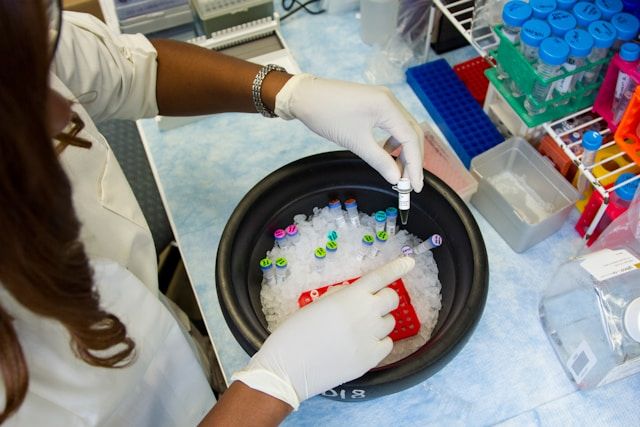Every year, 10 million people worldwide are diagnosed with some form of dementia. Some people can live fulfilling lives for decades after a diagnosis, managing symptoms through combinations of customized care, medications, and non-drug interventions. Other people may have a different experience, and a steeper decline that takes place over just a few years.
Exactly how quickly dementia will progress after a diagnosis is hard to foretell — and there are several factors that could influence this timeline. Firstly, different forms of dementia can progress at different rates. Certain genetic factors may play a role in accelerating the progression. Lifestyle factors and medications may also play a role in slowing down the disease or improving quality of life for its duration. Here’s what scientists know so far about how fast dementia progresses.
Different types of dementia move at different speeds
Most forms of dementia progress over the course of several years, and some people may even live for more than a decade after their diagnosis.
On average, people with Alzheimer’s disease will live eight years after the initial diagnosis. Frontotemporal dementia typically progresses faster than Alzheimer’s disease. Meanwhile the speed of Lewy body dementia can vary greatly with some individuals only living a few years after diagnosis and others surviving 20 years.
A few rare forms of dementia progress rapidly over the course of weeks or months. They may be caused by rare toxic proteins called prions, autoimmune conditions, or cancer.
Earlier on-set, faster progression
Early-onset forms of dementia are considered more aggressive forms of the disease. Research published in 2022 looked at dementia progression across people with frontotemporal dementia and Alzheimer’s disease, confirming that people who developed the disease earlier declined faster. On average, people with early-onset dementia will live for another three to six years after the diagnosis.
APOE4 can accelerate cognitive decline
Genetic factors can also affect the speed of cognitive decline. For example, in Alzheimer’s disease, carrying genetic risk factors such as APOE4, the Alzheimer’s gene, can also speed up the progression of the disease.
Carrying one or two copies of this gene can make it harder for the body to transport cholesterol through the bloodstream, damaging blood vessels near the brain and increasing its vulnerability to further damage. APOE4 can also make brain cells more vulnerable to the buildup of tau proteins, which are a major driver of Alzheimer’s disease progression.
However, it isn’t clear how much this shortens life expectancy for people with Alzheimer’s.APOE4 is also a major risk factor for Lewy body dementia, but it isn’t clear whether the gene is also a major driver of cognitive decline in that context.
An early diagnosis could be key to living longer
For people living with Alzheimer’s, there are a number of FDA-approved drugs to treat the disease’s symptoms.
And, with a new class of drugs called monoclonal antibodies on the market, including the recently approved Leqembi, patients can access a treatment that may slow down the progression of the disease.
However, when it comes to these new, disease-modifying drugs that address the pathology actually underlying the symptoms, half of Americans don’t receive an Alzheimer’s diagnosis until the disease is too far along to receive these new drugs. For people in the moderate or severe stages of Alzheimer’s, there are no approved treatments and few experimental drugs in clinical trials with the potential to slow disease progression.
Fortunately for this younger audience, within the next two years, blood tests will make it much easier for people to receive a diagnosis in the mild cognitive impairment or early Alzheimer’s stage.
According to Dr. Jason Karlwaish, co-director of the Penn Memory Center, early diagnosis gives patients and their loved ones the opportunity to plan for the future, time to find a caregiver, and makes them more aware of their vulnerabilities.
“I believe that mild cognitive impairment diagnosis is a useful diagnosis to identify people with cognitive problems that are causing inefficiencies and put them at heightened risk of developing dementia,” Karlwaish said in a Being Patient LiveTalk.
With new diagnostic technology and disease-modifying treatments, it may be possible to extend further the life expectancy of people diagnosed with dementia.























